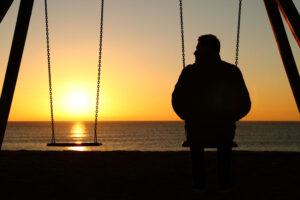5 Surprising Ways Climate Affects Recovery and Mental Health
 The Carpenters weren’t wrong when they said “rainy days and Mondays get me down.”
The Carpenters weren’t wrong when they said “rainy days and Mondays get me down.”
While about half of the population is relatively unaffected by changes in weather, the rest of us are deeply impacted by the seasons. Those who struggle with addiction and mental health issues are even more likely to experience tough emotions like sadness and irritability during the winter months.
Today, let’s look at 5 surprising ways the weather can affect your recovery and mental health.
1 — Daylight Has the Biggest Effect of All
Of all the changes in the seasons—from precipitation to temperature—the amount of light that hits the ground between daybreak and nightfall is the biggest predictor of negative moods. During winter months, the days shorten everywhere in the Northern Hemisphere—but some locations have shorter days than others. Portland, Oregon, for example, has only nine hours of daylight during January—and that daylight is often strongly filtered through thick rain clouds. Miami, on the other hand, receives 10.5 hours of sunlight, even in the middle of January.
Transitions Recovery Program patients who are used to dreary winter conditions report that the extra light available to them in Southern Florida has a noticeable impact on their mood, giving them an extra boost on their recovery journey and helping them better regulate their moods without substances.
2 — Weather Impacts Access to Healthy Coping Skills
When you’re contending with rain and snow, you have limited access to the outdoors. For many people, however, exercise, sunlight, and nature are major sources of wellbeing. While it’s possible to go for a walk in nasty weather, it’s a lot less likely to actually happen. This can lead to increased isolation and inactivity—big no-nos when it comes to mental health maintenance and a recovery lifestyle.
3 — Rain and Cold Trigger Depression and Anxiety
Many people with Substance Use Disorder (SUD) use drugs and/or alcohol to self-medicate underlying mental health issues, such as depression or anxiety. In cases where SUD is “co-morbid” with another mental health problem—also known as “dual diagnosis”—it’s important to treat both conditions simultaneously. Medication, counseling, and lifestyle changes can address many mental health issues. However, a favorable climate can also help. Depression and anxiety rates skyrocket during winter months in places with rainy and cold weather. For some, the condition is so pronounced that it is diagnosed as Seasonal Affective Disorder (SAD).
4 — PTSD Can Peak in Winter
PTSD (Post Traumatic Stress Disorder) can also be impacted by winter’s worst. PTSD patients are frequently diagnosed with depression and/or anxiety, which we already know is affected by bad weather. But PTSD patients who have experienced trauma in the winter—such as those involved in car crashes caused by icy roads—frequently experience “anniversary reactions” on the anniversary of their trauma, with heightened symptoms and distressing emotions. Often these anniversary reactions are triggered by changes in the weather that remind the patient of the conditions of their trauma.
5 — Holidays Add Extra Pressure
With all of these distressing weather-related triggers, the stress and pressure of the holiday season couldn’t come at a worse time. While the closeness of family and friends and the time off work seems like it would be the perfect remedy for winter weather blues, for many the promise of the season sets up unrealistic expectations for special days. Addiction is a family disease and it’s easy for get togethers to devolve into learned patterns of dysfunction. Others might find that they don’t have people to celebrate with at all. For those in recovery, the social expectation of alcohol consumption around the holidays can be especially difficult. The financial pressure of gift buying and travel add a final layer of stress to the equation.
For a Better Recovery, Seek Out Better Weather
At Transitions Recovery Program, we love sharing the warm Miami Beach sunshine with our patients, especially during the winter months. In January, we enjoy a high of 75° and a low of 63° with only four days of rain. Imagine taking a dip in our gorgeous outdoor swimming pool and soaking up those beneficial rays of sunlight everyday of your stay. While climate shouldn’t be the only factor in your decision of where to get treatment for addiction, it certainly can help. Give us a call today at 800-626-1980 to learn more about how we can help you get sober at our sunny south Florida rehab.

















